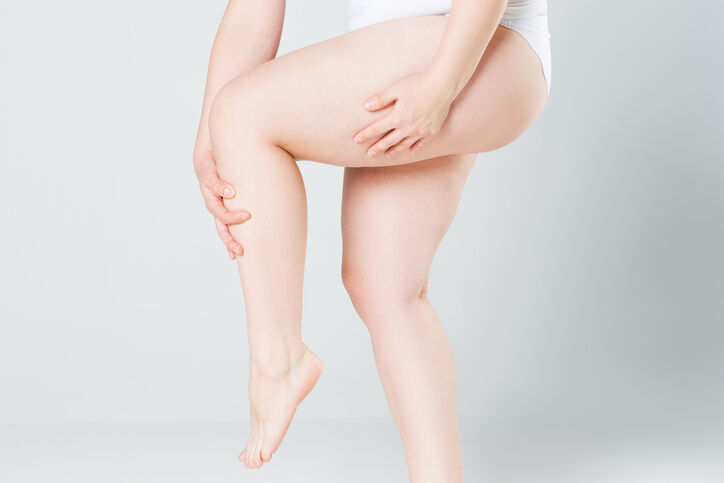
Lipedema and Varicose Veins
Swollen legs are often associated with varicose veins. But it could indicate another condition known as lipedema.

Did you know you have tiny valves inside your leg veins to move blood against gravity? Damaged or weakened valves create opportunities for varicose veins to form.
Not many people know their circulation depends heavily on tiny valves inside their veins. Though tiny, these valves are vital in pumping blood throughout your body. When the valves are strong and healthy, blood flows from the veins back to the heart. But if the valves malfunction, blood starts to pool in the veins, causing distressing symptoms related to venous insufficiency, including varicose veins and spider veins.
Unfortunately, damaged valves cannot repair themselves. Once the valves lose strength and can no longer function properly, your only option is to treat the compromised vein with a combination of minimally invasive surgical procedures and lifestyle changes. Let’s look at why weak vein valves cause problems within your veins and how to take care of them.
Blood travels throughout the body via arteries and veins. The arteries circulate oxygenated blood from the heart to the organs and tissues. The depleted blood is returned to the heart through the veins to get a new dose of oxygen. These one-way valves inside your veins open and close tightly to move blood upward to the heart.
However, these valves can wear down over time or due to certain conditions. The older we get, the more likely the valves will naturally lose strength. Obesity, genetics, and a sedentary lifestyle can also strain the valves and cause them to weaken. Your gender is another factor. Women experience vein disease in greater numbers than men due to hormonal changes related to pregnancy and menopause. High blood pressure and diabetes also raise the risk of venous insufficiency.
When the valves weaken, blood backflows and pools in the vein. This condition, known as venous reflux, leads to noticeable swelling, pain, cramping, itching, and an overall feeling of heaviness in the legs. You may see varicose veins and spider veins emerge on your legs. However, you could still experience symptoms without visible varicose veins. As venous insufficiency progresses, your skin may thicken, discolor, and develop sores. Varicose veins and sluggish circulation further increase the chance of blood clots in the veins.
Although the vein valves cannot repair themselves, you can improve your vein health with treatment and simple lifestyle changes. Not only will these tips lessen the symptoms of vein disease, but they may also help prevent varicose veins and spider veins from developing:
Exercise. No, exercise won’t strengthen the valves. But it can energize the calf muscles that work with the valves to push blood to the heart. Walking, biking, and swimming are the best exercises for your calves and veins. And if you’re stuck at your desk all day, stroll around the office every so often or flex your ankles to get blood moving.
Lose weight. Every extra pound you carry adds more pressure on your vein valves. In addition to exercise, you can manage your weight with a vein-friendly diet. Eat more colorful vegetables and fruits along with lean meats and dairy products, and limit your intake of saturated fats, sugar, and sodium.
Wear compression stockings. Compression stockings support blood flow through the legs by gently squeezing the veins. Keeping the blood circulating reduces the chance of swelling. Wear the stockings if you sit for long periods, such as during a long plane ride or at your desk.
Get treatment. Lifestyle changes can certainly help reduce the symptoms of vein disease and may even prevent it from happening in the first place. However, they are not a substitute for actually eliminating the diseased veins. Many minimally invasive surgical procedures are available, each collapsing or removing the diseased vein so that blood can divert to healthier veins where more robust valves can pump blood.
Don’t ignore the symptoms of vein disease! Treatment at Center for Vein Restoration can eliminate discomfort and improve your quality of life. Most insurance is accepted, including Medicare and Medicaid.
Want to learn more about what we can do for you? Contact one of our offices today to schedule a consultation, or call 240-965-3915 to speak to a representative. You may also schedule online at your convenience.